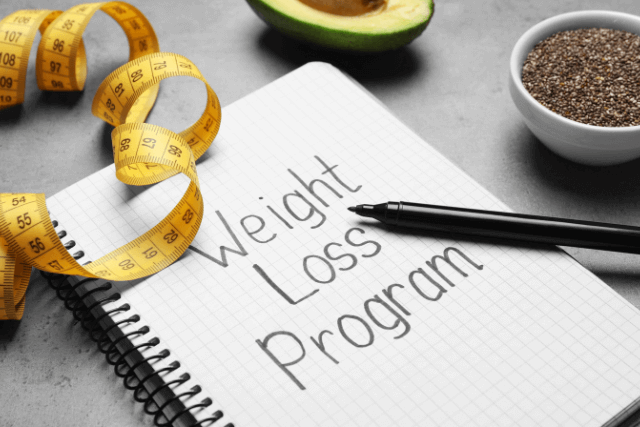Obesity and fertility are closely linked. When a person carries excess fat, it often disrupts reproductive health. Therefore, this blog dives deep into how weight affects both women and men, what you can do, and why even small changes matter. Along the way, we use simple words, active voice, and plenty of transition words like however, furthermore, moreover, and additionally to guide you clearly.
1. Obesity and Fertility: Understanding the Link
Firstly, Obesity and fertility must be understood together. Obesity alters hormone levels in both sexes. As a result, women may skip ovulation, and men may see lower sperm quality. Thus, the weight-fertility relationship matters more than many realize.
2. Female Fertility Issues: How Weight Affects Women
Women with obesity often face hormone shifts. Consequently:
- They may not ovulate regularly, therefore they may experience irregular menstrual cycles.
- They face higher risk of miscarriage
- They may develop PCOS (polycystic ovary syndrome)
Female fertility issues become more common when weight rises. In fact, excess body fat raises estrogen, which can stop ovulation. Moreover, PCOS often shows up in women with obesity. As a result, conceiving becomes harder.
Furthermore, obesity raises miscarriage risk and can cause pregnancy complications like gestational diabetes or preeclampsia. Therefore, managing weight before pregnancy matters.
3. Male Fertility Decline: The Weight Connection
Likewise, men get affected too. With obesity:
- Testosterone drops
- Estrogen rises
- Sperm count, shape, and movement decline
- Scrotal fat may raise testicle temperature
- Libido and sexual function may suffer
These issues lead to male fertility decline. For instance, low testosterone and excess heat both reduce sperm quality. Additionally, obesity raises inflammatory markers, which can damage sperm DNA. Consequently, fertility chances fall.
4. Weight Loss Fertility Boost: Why Small Changes Matter
Here’s the good news: even small weight reduction helps. Studies show that losing 5–10% of body weight restores ovulation in women. In men, sperm quality often improves with modest weight loss too.
Therefore, a weight loss fertility boost doesn’t require perfection. Instead, consistent, healthy habits pay off.
5. Healthy Lifestyle Fertility: What You Can Do
Now that you know the basics, let’s focus on healthy lifestyle fertility steps:
Balanced Diet:
- Eat plenty of fruits, vegetables, lean proteins, and whole grains
- Avoid sugary drinks and processed foods
- Control portion sizes
Regular Exercise:
- Aim for 150 minutes of moderate activity per week
- Mix cardio with strength training
- Even walking helps
Quit Smoking & Limit Alcohol:
- Both harm fertility in men and women
- Quitting boosts hormone balance
Manage Stress:
- Try yoga, meditation, or breathing exercises
- Stress can disrupt hormones
Get Check‑Ups:
- Talk to your OB/GYN or fertility specialist
- Consider getting support from a nutritionist or counselor
Additionally, for people significantly overweight, bariatric surgery may lead to big weight loss. However, this requires medical advice and careful follow‑up.
6. Obesity and Fertility: Diet Tips That Work
In terms of food:
- Choose nutrient‑dense meals
- Include fiber to help regulate blood sugar
- Eat healthy fats like avocado and nuts
- Avoid crash diets as they backfire
Simple meal swaps like choosing whole grains over white bread may make a big difference gradually. Moreover, hunger control supports consistency.
7. Exercise Plan for Fertility
Moving your body can help:
- Try brisk walking, swimming, or cycling
- Add in 2–3 weekly strength workouts
- Start slow and increase gradually
- Always stay hydrated
- Regular movement helps insulin sensitivity, hormone balance, and stress relief.
8. Female Fertility Issues: Signs to Watch For
If you’re a woman, look out for:
- Missed or irregular periods
- Heavy or painful cycles
- Difficulty conceiving for 6+ months (if age < 35) or 12+ months (age ≥ 35)
- Additionally, symptoms like excess hair growth, acne, or thinning hair may signal PCOS. Therefore, don’t ignore signs. Talk to a doctor.
9. Male Fertility Decline: Symptoms Men Should Know
Men should be aware too:
- Low sex drive
- Erectile problems
- Swollen testicles or pain
- Family history of infertility
- Obesity-related health issues like diabetes
If these affect you, a semen analysis and medical check-up may help.
10. Medical Tests & Support
Healthcare providers can guide your journey:
- Women: hormone tests, pelvic ultrasound, ovulation monitoring
- Men: semen analysis, hormone levels, physical exam
Additionally, a fertility specialist may recommend assisted reproductive technology if needed.
11. Preparing for Pregnancy Post-Weight Loss
Once you lose weight:
- Ensure iron, folate, and vitamin D are good
- Get regular prenatal care
- Keep exercise moderate
- Avoid unhealthy weight loss during pregnancy
- Additionally, take care of mental health. Stress and body image both matter.
12. Obesity and Fertility in Older Adults
Age adds another layer:
- Women over 35 lose egg quality
- Men over 40 face fertility decline
Therefore, controlling weight earlier becomes even more important with age.
13. When to See a Specialist
If you’ve tried lifestyle changes and still struggle after:
- 6 months (age < 35)
- 12 months (age ≥ 35)
then talk to a fertility specialist. For men, a decline in sperm health also warrants medical attention.
14. Obesity and Fertility: Future Directions
Researchers now study:
- Impact of gut health
- Role of sleep
- How stress‑reduction techniques help
Staying informed ensures you get the best support.
Summing Up
- Obesity and fertility are linked through hormones.
- Women face ovulation problems and PCOS risk.
- Men suffer low sperm quality and testosterone dips.
- Losing 5–10% weight helps both sexes.
- A balanced diet, exercise, stress management, and quitting smoking bring big gains.
- Medical tests and support help when lifestyle alone isn’t enough.
Key Takeaways
| Point | Takeaway |
|---|---|
| Focus Keyword | Obesity and Fertility |
| Diet and Exercise | Core to boosting fertility |
| Weight Loss | 5–10% has big benefits |
| Medical Advice | Talk to experts if issues persist |
Frequently Asked Questions
Q1: Can a small weight loss boost fertility?
A: Yes. Even a 5% drop in weight often restores ovulation and improves sperm health.
Q2: How soon after weight loss should we try?
A: After 3–6 months, hormone levels often balance, so this may be a good time.
Q3: Are supplements needed?
A: Prenatal vitamins help women, but no single supplement replaces healthy habits.
Q4: Does bariatric surgery help fertility?
A: It can with major weight drop, but needs medical supervision and time (usually wait 12–18 months post-surgery before conceiving).
Final Thoughts
In short, Obesity and Fertility are deeply linked but you can act now. Start with simple steps: eat well, move more, manage stress, and see your doctor. Next, small wins build big results. That way, you improve not only your chances to conceive, but also your long‑term health.



